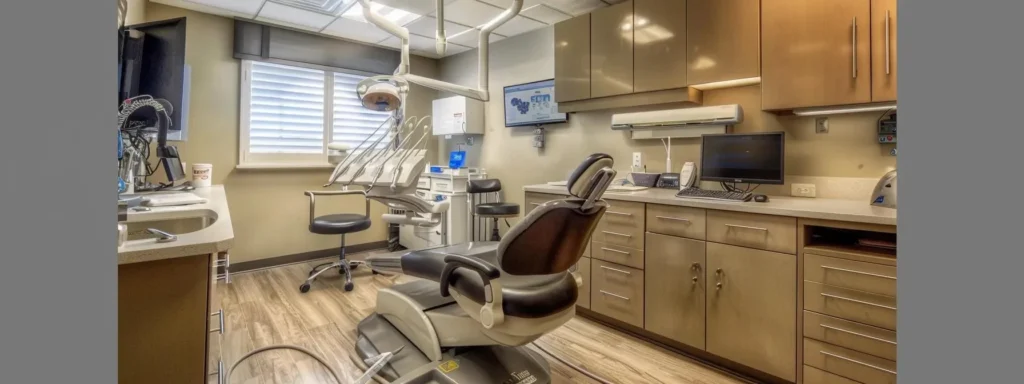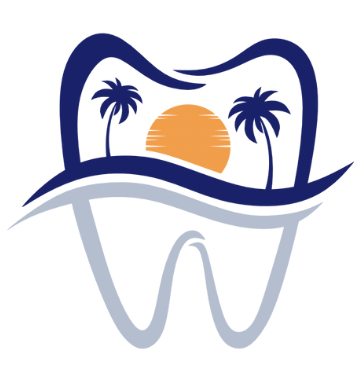Ensuring the safety of dental implant procedures centers on the careful prevention of nerve damage. Through comprehensive evaluation and precise surgical techniques, the rare yet serious risk of nerve damage, occurring in around 1% of implants, is actively minimized. Our focus is squarely on safeguarding patient health by staying vigilant at every step of the implant process.
Being observant of each patient’s anatomical differences is the first critical step towards preventing nerve injury. Variabilities like bone density, particularly in relation to the jaw, and the diverse pathways of the inferior alveolar nerve, require a customized assessment strategy. This personalized attention means the chances of nerve damage are significantly lowered, as surgical plans are tailored to the individual’s specific anatomy.
We leverage advanced diagnostic means, including the application of sophisticated 3D imaging technology. This not only provides a comprehensive view of the surgical area but also ensures that the implant placement avoids compromising sensitive nerve pathways. Coupling these technological advantages with our surgical team’s expertise supports our commitment to delivering the most secure implant outcomes. Through preparation, we protect your long term dental health.
Personalized Care to Reduce Risk Factors
Comprehensive preprocedure evaluations are critical to identify and reduce the risk of nerve damage, a complication that can arise from anatomical and physiological variability during dental implant surgeries. A custom-tailored approach to each patient’s needs ensures the highest standards of safety are upheld, minimizing the chances of adverse outcomes.
One key aspect of this personalization is assessing how aging related changes, such as the decrease in bone density, may impact the implant’s stability and positioning. This understanding enables surgeons to adjust their techniques accordingly, thus reducing the risk of inadvertently harming nerve structures during the procedure. Adjustments may include altering the angle of implantation or choosing different implant types to accommodate the patient’s bone structure.
Equally important is the recognition of each patient’s specific anatomical configuration, notably the path of nerves within the jaw, such as the inferior alveolar nerve:
- Individual anatomy assessment: Detailed evaluation of each patient’s unique nerve pathways and bone structure
- Age-related considerations: Adjustments for changes in bone density and healing capacity over time
- Customized surgical planning: Tailored implant angles and types based on individual anatomical needs
- Risk factor identification: Early recognition of factors that could increase nerve damage potential
By mapping these unique pathways pre surgery, dental surgeons can plan the implant placement with precision, steering clear of any vital nerve structures and ensuring a safer surgical process. This thoughtful approach reflects our priority on protection and comfort.
Precision Techniques for Optimal Implant Placement
When placing dental implants, the reduction of direct mechanical trauma is essential to shield nerves from damage. The goal of precision during implantation is twofold: to avoid misplaced implants that can lead to nerve injuries and to ensure the overall success of the procedure. By concentrating on accurate implant placement and gentle surgical techniques, we significantly reduce the potential for nerve trauma.
To achieve this precision, we employ a combination of sophisticated diagnostics and the expertise of our seasoned clinical team. Utilizing tools that provide real time surgical guidance, our practice is committed to placing each implant in its most favorable position. This not only assures safety during the procedure but also promotes optimal healing and functionality of the implant over time.
The timing of implant placement also plays a critical role in nerve protection. Implantation that occurs immediately after a tooth extraction requires special care to prevent unnecessary pressure on the nerves. By allowing adequate time for healing after extraction, we adopt a strategy that fosters healthy tissue regeneration, ultimately leading to stronger support for the implant and diminished risk of nerve complications. Every step is taken with purpose and precision.
Early Detection and Response to Warning Signs
At the heart of reducing nerve damage following dental implants is the vigilant identification and management of early symptoms. A prompt response can significantly reduce the risk of lasting complications, ensuring that patients retain their quality of life after the procedure.
As symptoms manifest, differentiating between temporary numbness, which may naturally subside, and persistent paresthesia, which indicates more serious nerve involvement, is essential. This discernment allows our team to quickly evaluate the need for intervention, tailoring our approach to the intensity and duration of the symptoms experienced by the patient.
Lasting nerve damage poses a threat to essential functions such as chewing and speaking, which emphasizes the importance of rapid care. By initiating treatment at the onset of the earliest symptoms, we increase the likelihood of full recovery, demonstrating our commitment to patient health above all else.
Education is a key component of our strategy. Informing patients about potential symptoms and their significance equips them for active involvement in their post operative journey. This proactive approach, combined with our attentive post operative care, establishes a safety net for those in our care. It ensures patients feel heard, understood, and supported.
Comprehensive Prevention Through Advanced Technology
Our dental practice is dedicated to the prevention of nerve damage through careful pre surgical planning and the application of advanced technology. This proactive stance forms the cornerstone of our surgical philosophy, offering patients the utmost confidence in the safety of their procedures.
Before the surgery, we engage in thorough planning, considering the individual needs and anatomical factors of each patient. This includes assessing the proximity of nerves to the planned implant site and adjusting the surgical approach if necessary. Employing state of the art diagnostic tools enables us to create a precise surgical blueprint, which is critical for minimizing risks.
During the implant process, our real time guidance systems provide unprecedented feedback and precision:
- Pre-surgical planning: Thorough assessment of nerve proximity and individualized surgical blueprints
- Real-time guidance: Advanced systems providing live feedback during implant placement procedures
- Post-operative monitoring: Careful observation and patient education during the critical healing period
- Continuous innovation: Integration of latest technologies to enhance safety and precision standards
Our responsibility to patient safety continues post operatively, where careful monitoring and guidance support the healing process. By providing patients with thorough education on what to expect during recovery, we ensure vigilant oversight in the critical time following surgery. It’s an approach that empowers patients and promotes peace of mind.

Managing Complex Cases with Expert Care
In addressing complex dental implant cases, our practice combines deep clinical experience with advanced diagnostic tools to make informed decisions that prioritize patient health. We understand that the complexity of these cases requires a thoughtful and well informed approach to ensure patient safety and successful surgical outcomes.
Our strategy often includes considering less invasive surgical options, particularly in complex cases where traditional methods may pose a higher risk. By adjusting our surgical plan to the patient’s specific needs, we focus on achieving the best outcome while maintaining the highest safety standards. This may involve techniques such as flapless implant placement or the use of shorter implants.
Communication is key in our process. We ensure patients are well informed about the risks and details of the proposed treatment. By being transparent and setting realistic expectations, we build a relationship of trust with our patients. Should any nerve injury symptoms emerge unexpectedly after surgery, our immediate response is geared towards specialist referral and intervention. This continuity of care leads to better long term outcomes.
Expert Support and Continuous Training
Our dental practice is anchored in providing expert care through continuous provider training, advanced technology, and a strong network of specialists. Each layer of our approach is designed to instill confidence and ensure the best possible outcomes for our patients.
Education and expertise play a crucial role in our ability to offer quality dental services. Our providers undergo thorough training, particularly in understanding nerve anatomy, a key component in successful dental implantations. This ensures they are skilled at both avoiding complications and responding effectively if an emergency arises.
The technology we utilize in our practice contributes significantly to our high standard of care. From state of the art imaging equipment to precision surgical tools, these technological advancements enable us to place implants with remarkable accuracy, which is crucial for avoiding nerve damage and ensuring implant longevity.
We maintain strong relationships with a network of specialists, including oral surgeons. These partnerships allow us to provide comprehensive care that extends beyond the walls of our office. Whether it’s for complex cases or unforeseen circumstances, our patients have access to the specialized expertise necessary for the best dental care. This collaboration strengthens our commitment to excellence.
Promoting Long Term Success Through Prevention
Within our dental practice, we lay a strong foundation for implant success by adopting proactive measures, emphasizing patient education, and fostering cooperation for optimal oral health. Emphasizing these aspects of care is instrumental in ensuring the longevity and functionality of dental implants.
We advocate for a soft diet after implant surgery to facilitate healing and protect the implant site. Our guidance on oral hygiene measures after surgery is clear and thorough, helping patients understand their critical role in the care process. These recommended practices are not only beneficial immediately following the procedure but are also key habits that contribute to long term success.
Another pillar of our preventive approach involves educating patients about the effects of lifestyle choices, such as smoking, on implant health. By illustrating the connection between these choices and potential complications, we empower patients to make decisions that foster faster healing and better overall outcomes.
Proactive support, combined with continuous patient education, creates a more stable and predictable path to implant success. This foundation of prevention allows patients to move forward with confidence.
Your Safety Is Our Priority
Advancements in dental implant technology and procedures have established them as reliably safe treatments. Our practice prides itself on contributing to this evolution by fostering a partnership between well informed patients and our devoted clinical team, ensuring the best possible outcomes with a focus on safety.
In our pursuit of excellence, we consistently integrate the latest technology to enhance the precision and predictability of our dental implant placements. This commitment to state of the art care allows us to provide a distinctly positive experience for those seeking lasting solutions to tooth loss, while our dedication to thorough, considerate patient care solidifies the trust patients place in us.
At Laguna Heights Dental, we understand that your safety and comfort are paramount when considering dental implant treatment. Ready to move forward with confidence knowing your implant procedure prioritizes your safety above all else? Contact Laguna Heights Dental today to schedule your consultation and discover how our meticulous approach to nerve protection and patient care can give you the secure, successful implant treatment you deserve.
Schedule your consultation Today!
Laguna Heights Dental
30231 Golden Lantern, Ste D
Laguna Niguel, CA 92677
(949) 363-1200
https://lagunaheightsdental.com/
See More Reviews From Laguna Height Dental. View information about local places in our community. Get Driving Directions to Our Practice
Frequently Asked Questions About Nerve Damage and Dental Implants
What are the chances of nerve damage from dental implants?
While the chance of experiencing nerve damage from dental implants is relatively low, at about 1%, it’s essential to understand that individual anatomy plays a significant role in reducing this risk. Your dental specialist will use precise planning and advanced techniques to ensure your safety and comfort throughout the procedure.
How can I prevent nerve damage during dental implant surgery?
To minimize the risk of nerve damage, work with a dental professional who employs careful pre-surgical planning and state of the art technology. Advanced imaging techniques and careful surgical execution significantly reduce complications, providing a safe environment for your implant treatment.
What are the symptoms of nerve damage after an implant?
If you have nerve damage following an implant procedure, you may experience numbness, tingling, or a burning sensation in your gums, lips, or chin. It’s crucial to report these symptoms to your dentist immediately for prompt assessment and management, ensuring the best possible outcome for your dental health.
Related Articles
Preparing for Dental Implant Surgery, After Care for Implants, Dental Implants Pricing Guide, Implants Vs Traditional dental, Traditional Dental Implants, Dental Implants, Same-Day Dental Implants, Affordable teeth implants, Dental implants surgery, Dentures with implants, Full Mouth Dental Implants, Mini Dental Implants, Zirconia Dental Implants, Dental Implant Success, Dental Implant Types, Dental Implant Candidates, Dental Implant Complications, Dental Implant Maintenance, Dental Implant Cost Factors, Dental Implant Failure





